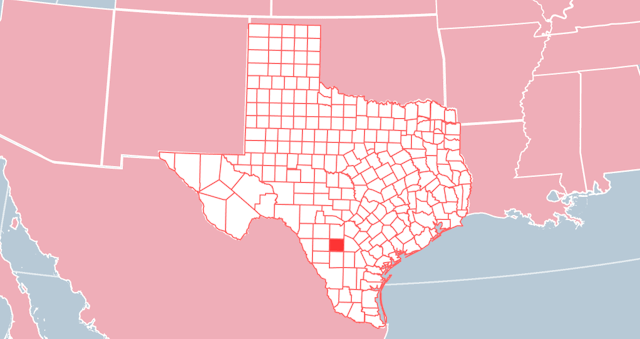Rehabs in Frio
Frio County is located in the US state of Texas. This province was created in 1858 and organized in 1871. Its official center is in Pearsall. According to the 2020 US census, the region had a population of 18,385.
Limiting the usage of drugs and alcohol is a major public health concern in Frio County, TX. From 2014 to 2018, 21% of all driving deaths in this region are alcohol-involved (6 out of 28 driving deaths). Moreover, 19% of local adults reported binge drinking in 2017. For the same year, the opioid prescription rate was 40,2 per 100 individuals.
In brief, this province should undertake the process of establishing drug and alcohol rehabs in Frio County. Besides, the programs should offer services that go beyond healing addiction. That is to say, they also have to provide dual diagnosis treatment for the addicts who have co-occurring mental health disorders.
As of 2020, this area has 2 centers that provide treatment for addiction. Its service includes medication-assisted treatment as well. Only one hub has a license to offer buprenorphine for patients with opioid use disorder. However, there are still options to find medical assistance nearby. Read the article, get acquainted with available recovery plans, choose one and obtain lifelong recovery.
Available Treatment Options
Drug and alcohol rehabs in Frio County, Texas provide personalized care for reaching full recovery. Their individualized plans include such components as trauma-informed care and therapies for co-occurring mental health disorders.
So, depending on the severity of the issue, person is to participate in the procedure of substance abuse evaluation, detox, inpatient and outpatient programs, aftercare, and more. Let’s discuss each of them separately.
Detox
Detox is not enough for healing your body from drug and alcohol dependence. However, it could be the first vital step to achieving the right results. Look into this procedure as a way to get prepared for further therapy.
Detox provides medical control while the person deals with withdrawal symptoms and cravings. This gives him/her a safe way to overcome severe and painful withdrawal symptoms.
Inpatient Program
Support from professionals and peers, especially when you don’t receive any at home, is vital in case of severe addiction. Inpatient or residential care provides 24-hours professional control. Moreover, the patients are required to live at the facility until the end of the recovery program.
Behavioral therapy sessions or expressive therapies, stress reduction services, as well as amenities and recreational activities are the main components of the treatment.
Outpatient
When an addict has a mild level of dependence and support from family and friends, he/she may receive the proper level of care at an outpatient clinic. The patients don’t have to live in the facility. Instead, they only have to attend in group and individual counseling sessions during the week.
This type of treatment works well with severe dependencies as well, when the patient has already completed an inpatient recovery course.
Aftercare
A person can still benefit from having support even after finishing rehab. Aftercare and peer support are vital for maintaining sobriety. Generally, aftercare involves sober living houses, a 12-step therapy, access to community resources, job support, etc.
Payment
There are different payment options to consider for the rehabs in this area. In the case of having a private health insurance plan, you might have full or partial coverage of the expenses. If you don’t have private health insurance, you can search for the hubs that accept Medicaid or Medicare.
You may also apply for medical loans, get financial aid from SAMHSA, negotiate payment plans, etc.
Substance Use Services
The programs of Outreach, screening, assessment, and referral (OSAR) are accessible to all residents who want to get details on substance use centers in their living points. So, those who don’t know where to begin may apply for assistance from OSAR. All the applicants should have current residency in Texas.
The address of the office that serves this area is:
Region 8 The Center for Health Care Services
601 N. Frio
Building II-Entrance C
San Antonio, TX 78207
Crisis phone: 800-316-9241 or 210-223-7233
OSAR phone: 210-261-3076

